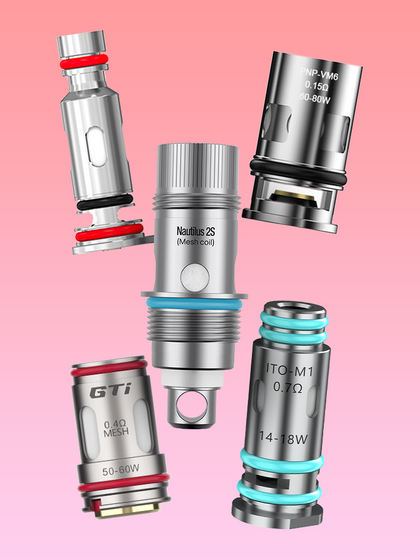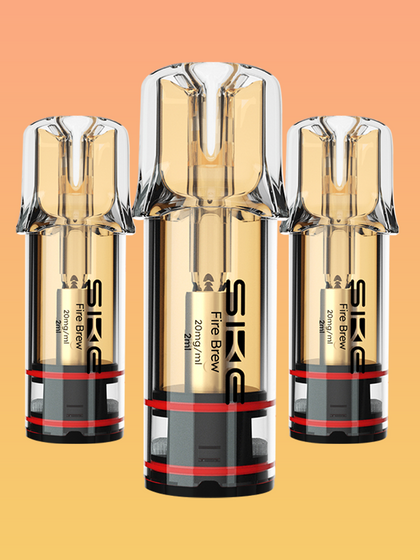CBG Studies – A Major, Minor Cannabinoid?
Jun 12, 2023

In the context of CBD e-liquids and products, the cannabinoids CBD and THC are the relatively well known ones. But there’s another cannabinoid that research is showing play a part as major cannabinoid. It’s called CBG, or cannabigerol.
CBG is classed as a minor cannabinoid and only makes up around 1% of the plant, although strains have now been developed that yield more. And while CBD is understood to have certain positive effects, and that THC causes the psychoactive effect, CBG is relatively unknown. It’s difficult to extract and it’s not produced in the body’s Endocannabinoid System.
And as there are numerous other cannabinoids present in cannabis…
…why is CBG important?
There are two main reasons:
Firstly, and research is limited in comparison to the major cannabinoids, studies show that CBG can have a positive benefit on very specific physiological areas, and so the potential for medical use is promising.
For example, CBG is thought to be particularly effective in treating glaucoma because it reduces intraocular pressure, and it’s been found to reduce inflammation, inhibit certain cancerous tumours and have antibacterial effects.
Secondly, CBG is now believed to be the precursor to the three major cannabinoids CBD, CBC and THC. Cannabigerolic acid converts into tetrahydrocannabinolic acid (THCA), cannabidiolic acid (CBDA), and cannabichromenic acid (CBCA).
… they all start out as the acid form of CBG. It’s thought to be the template for everything else that comes from cannabis.
The implications of these findings have stimulated further research into CBG.

CBG – Some of What the Science Says
Evidence shows that CBG has the potential to benefit a number of medical issues including being an anti-inflammatory (particularly in the bowel area); as an anti-bacterial agent it’s linked to prevention of the MRSA bacteria, it’s been found inhibiting colon cancer tumours and inhibit certain disorders of the brain’s neurons. And more…
…but most of the evidence comes from pre-clinical trials and has yet to be proven in humans.
CBG and Colorectal Cancer
A 2014 study showed that CBG can inhibit tumour progression in colorectal cancers with the study authors suggesting it should be used in prevention and cure. “CBG hampers colon cancer progression in vivo and selectively inhibits the growth of CRC cells, an effect shared by other TRPM8 antagonists. CBG should be considered translationally in CRC prevention and cure.” (1)
CBG as an Anti-Inflammatory
One study into the effects if CBG showed that CBG can act as a COX-2 inhibitor, similar to non-steroidal anti-inflammatory drugs, NSAIDs. (2) “CBD and CBG also have analgesic and anti-inflammatory effects, indicating that there is scope for developing drugs which do not have the psychoactive properties of THC.” (3)
CBG as a Neuroprotector
When mice were ‘intoxicated’ with 3NP (an acid inhibitor that creates locomotor deterioration resembling that of Huntingdon’s Disease) CBG was found to be a great neuroprotector. “Different plant-derived and synthetic cannabinoids have shown to be neuroprotective in experimental models of Huntington's disease (HD) through cannabinoid receptor-dependent and/or independent mechanisms… CBG was extremely active as neuroprotectant in mice intoxicated with 3-nitropropionate” (4)
A study of non-psychotic cannabinoids showed that canibigerol quinone (an organic compound from CBG) was found to alleviate the symptoms of Multiple Sclerosis – “A cannabigerol quinone, the compound VCE-003, has been shown to alleviate symptoms in a viral model of multiple sclerosis.” (5)
“This study highlights the therapeutic potential of VCE-003 as an agent for the treatment of human immune diseases with both inflammatory and autoimmune components.” (5)
CBG in the Treatment of Psoriasis
Cannabinoid receptors are present in human skin, but while the receptors might have a ‘circumstantial role’ in the proliferation of keratinocyte – the predominant cell in the epidermis - “results show that cannabinoids inhibit keratinocyte proliferation, and therefore support a potential role for cannabinoids in the treatment of psoriasis.” (6)

Is CBG Legal?
Like CBD, CBG is perfectly legal, as long as its production does not exceed the legal allowance of THC, which is a controlled substance in the UK. CBG alone is not designated a controlled substance under UK law.
Notes:
(1)Colon carcinogenesis is inhibited by the TRPM8 antagonist cannabigerol, a Cannabis-derived non-psychotropic cannabinoid. Authors: F Borrelli et al
(2)Evaluation of the Cyclooxygenase Inhibiting Effects of Six Major Cannabinoids Isolated from Cannabis sativa. Authors: Lucia Renee Ruhaak et al
(3) Cannabinoids in Clinical Practise. Authors: Williamson EM, Evans FJ.
(4) Neuroprotective properties of cannabigerol in Huntington's disease: studies in R6/2 mice and 3-nitropropionate-lesioned mice. Authors: Valdeolivas S et al
(5) A cannabigerol derivative suppresses immune responses and protects mice from experimental autoimmune encephalomyelitis. Authors: Carrillo-Salinas FJ et al
(6) Cannabinoids inhibit human keratinocyte proliferation through a non-CB1/CB2 mechanism and have a potential therapeutic value in the treatment of psoriasis. Authors: Wilkinson JD, Williamson EM.







